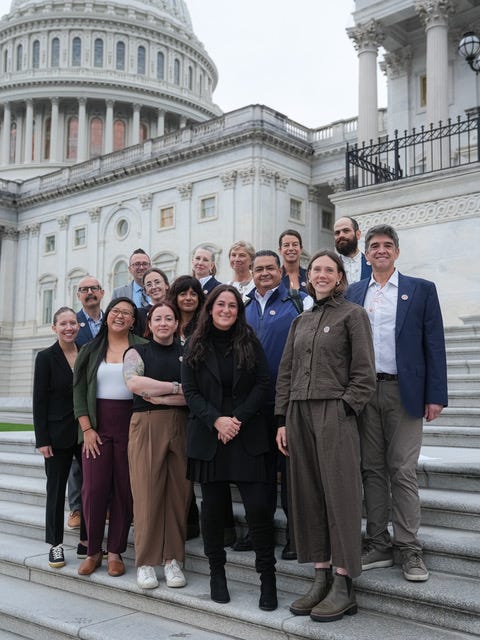A day on the Hill advocating for restaurants
To summarize: “Being closer to this process makes you realize that it does feel really inaccessible and really abstract, but it actually isn’t.”

Independent restaurants have never had it easy. Rising costs, thin margins, increasing fees, labor challenges and evolving laws and policies are just a few of the always-evolving challenges they face.
It’s nice to talk to the people who are working for change. In September, the Independent Restaurant Coalition sent chef- and restaurateur-advocates to Washington, D.C. to get face time with federal elected officials. They talked about a host of issues facing restaurants right now, including the country’s brand new no-tax-on-tips policy, rising credit card fees, online reservations chaos, an increasing reliance on third-party delivery, and more.
The group, including Andrea Borgen Abdallah, the IRC’s director of community engagement, held some 60 meetings across the House and Senate. That’s a level of access, planning, and advocacy that can easily feel foreign and inaccessible to many of us (I know it does to me!), but in a recent interview Abdallah and Irene Li, co-founder of Boston’s Mei Mei restaurant group and restaurant tech company Prepshift (and an IRC board member), pulled back the curtain on what’s actually a critical part of a working democracy.
When the IRC formed in the early pandemic days of March 2020, it was to advocate for America’s local restaurants, a group traditionally underrepresented in policy discussions. Today, the IRC, designated as a 501(c)(6), is a nonpartisan, nonprofit advocacy org funded primarily by member dues and donations. This official classification comes with strict rules. As an advocacy organization, it’s expected to lobby for change. Its activities must improve business conditions for a group. And political activity is restricted, which means the group can’t take an official stance on either side of the aisle, even if it wanted to.
“What we can do, because we are nonpartisan, is connect with lawmakers with all different backgrounds and priorities on the places where we align,” Li told me. “To me, that goes back to hospitality. We don’t have to be friends, but we have this moment where we’re intersecting, and we have to figure out how to make that work.”
In September, just before the record-length government shutdown began, the IRC helped arrange meetings and organize talking points for max one-day impact. In our fast-changing country, this advocacy is a huge part of the future of hospitality.
I recently spoke with Li and Abdallah about their (very full) day on Capitol Hill and what it’s like to formally advocate for a better restaurant industry inside the halls of Congress.
Our interview has been edited for length and clarity.
Expedite: As someone who’s never gone to Washington to appeal directly to our elected leaders, I know so little about how it actually works. Can you explain the context?
Irene Li: “Part of what the IRC does a really great job with is like helping direct our conversations with lawmakers and their staff, depending on what committees they serve on, or what issues they’ve expressed interest in in the past.”


